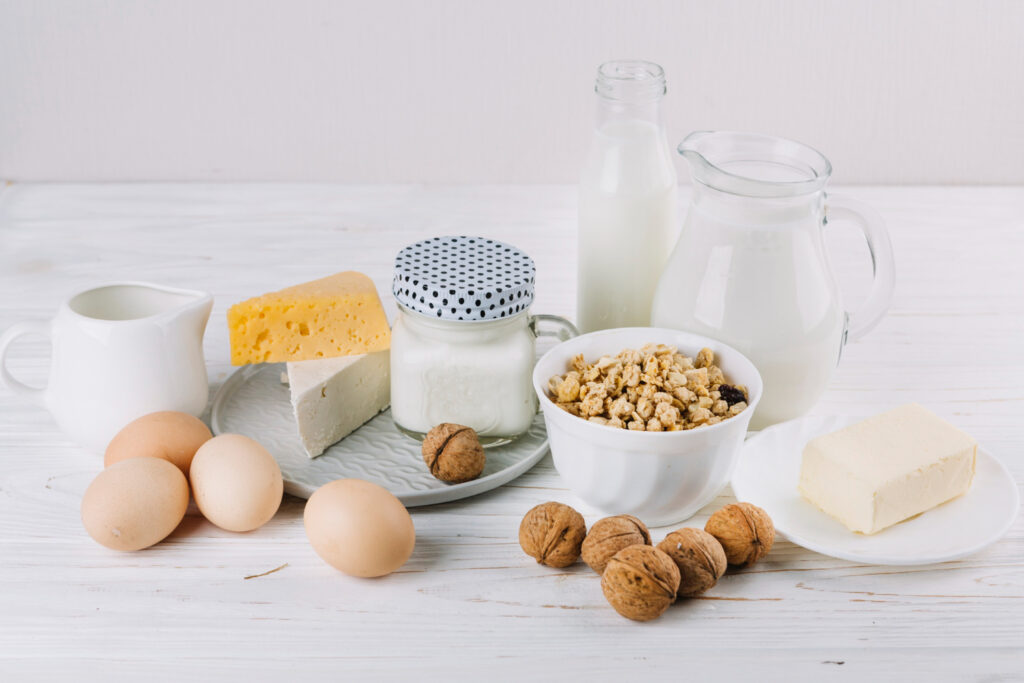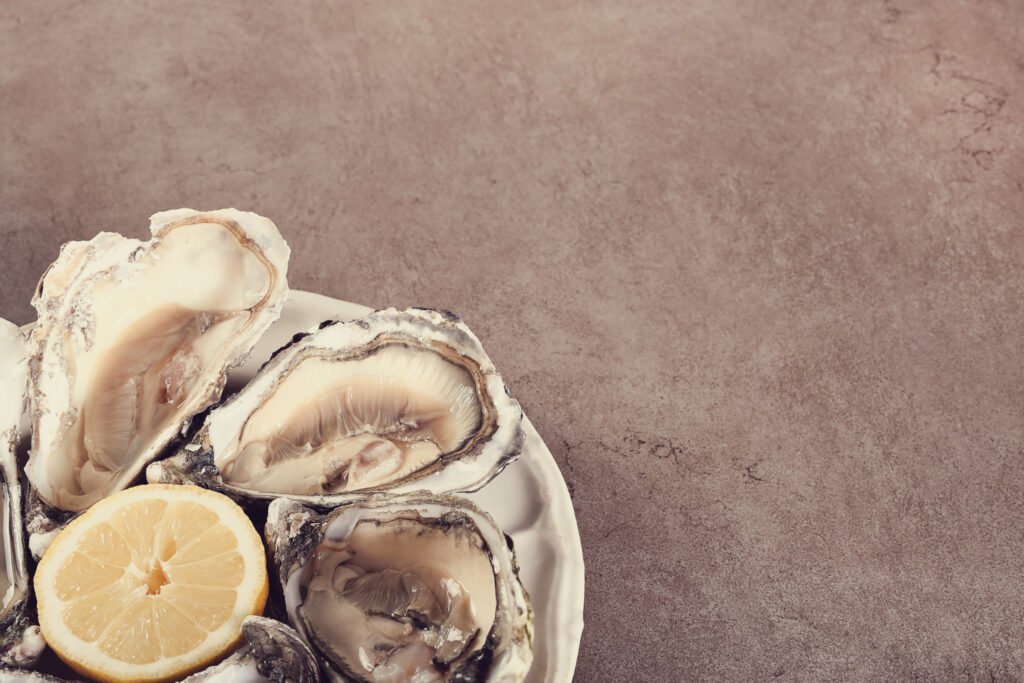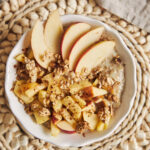
Overview
In this article
Cholesterol management is often at the forefront of conversations about heart health. We all know that foods like deep-fried snacks and sugary desserts can cause problems for cholesterol, but some everyday foods, which seem harmless, can also raise cholesterol levels. This article dives deep into understanding cholesterol and sheds light on the foods that may unexpectedly harm your cholesterol levels. Along the way, you’ll find healthier alternatives to these foods and tips to keep your heart in top condition.
What Is Cholesterol, and Why Is It Important?
Cholesterol is a waxy substance naturally produced by your body and found in some foods. It’s essential for various bodily functions, including building cell membranes, producing hormones, and synthesizing vitamin D. However, there are two types of cholesterol: low-density lipoprotein (LDL) and high-density lipoprotein (HDL).
- LDL Cholesterol: Often called “bad” cholesterol, too much of it can lead to plaque buildup in your arteries. This plaque narrows the arteries and increases the risk of heart disease, heart attacks, and strokes.
- HDL Cholesterol: Known as “good” cholesterol, it helps remove LDL cholesterol from the bloodstream, lowering your risk of heart problems
Maintaining a healthy balance between LDL and HDL cholesterol is crucial for long-term heart health. While genetics and lifestyle factors play a role in determining your cholesterol levels, diet is one of the most critical elements you can control. Understanding which foods may contribute to high cholesterol can help you make informed choices about your diet
Related : 7 Tips to Lower Your Cholesterol Fast
Foods That Can Unknowingly Raise Your Cholesterol
You might already be cutting back on obviously unhealthy foods like fried chicken or processed chips, but did you know that some seemingly healthy foods can also raise your cholesterol levels? Let’s explore the surprising foods that could negatively impact your cholesterol levels.
Full-Fat Dairy Products

Many people enjoy dairy products as part of their daily diet. While dairy provides important nutrients like calcium and vitamin D, full-fat dairy products can be high in saturated fats, which increase LDL cholesterol.
- Why It’s Bad: Full-fat milk, butter, cheese, and cream all contain high levels of saturated fats. Consuming too much saturated fat encourages the liver to produce more LDL cholesterol, raising blood cholesterol levels.
- Better Option: Choose low-fat or non-fat dairy products. For example, switch from whole milk to skim milk, or use low-fat yogurt instead of cream in your cooking
Processed Meats
Fruits That Help With Weight Loss
Processed meats, such as bacon, sausages, and deli meats, are often staples in many households. However, they can have serious consequences for your cholesterol levels.
- Why It’s Bad: Processed meats are high in saturated fats and sometimes contain trans fats, which are especially harmful. They also contain high amounts of sodium, which can raise blood pressure and lead to heart issues.
- Better Option: Opt for lean meats like skinless chicken or turkey. Better yet, consider plant-based protein sources like beans, lentils, or tofu. These alternatives offer protein without the added saturated fat.
Baked Goods and Pastries
Who doesn’t love a warm pastry or a delicious slice of cake? While they’re a comforting treat, they can also be a hidden source of harmful fats.
- Why It’s Bad: Many baked goods contain butter, cream, or hydrogenated oils, all of which are high in saturated fats and sometimes trans fats. Additionally, these treats often have high amounts of added sugars, which can worsen cholesterol levels.
- Better Option: If you enjoy baking at home, try using healthier alternatives like olive oil or applesauce in place of butter. Also, consider using whole-grain flours instead of refined flours, which add fiber and improve heart health
Do You Really Have High Blood Pressure? Check Your Arm Position
Tropical Oils (Coconut Oil, Palm Oil)
Tropical oils have gained popularity in recent years due to their perceived health benefits. Coconut oil, in particular, is often labeled as a “superfood,” but it’s important to use it sparingly.
- Why It’s Bad: Coconut oil and palm oil are high in saturated fats, which can raise LDL cholesterol. While some research suggests that coconut oil may also raise HDL cholesterol, it still increases overall cholesterol levels.
- Better Option: Use heart-healthy oils such as olive oil, avocado oil, or canola oil. These oils contain unsaturated fats, which help lower LDL cholesterol and improve heart health.
Shellfish

Shellfish, including shrimp, lobster, and crab, are enjoyed by many, but they can contribute to higher cholesterol levels.
- Why It’s Bad: Shellfish contains high levels of dietary cholesterol. Although dietary cholesterol doesn’t impact blood cholesterol as much as saturated and trans fats, consuming large amounts of shellfish can still raise LDL levels.
- Better Option: When eating shellfish, prepare them in heart-healthy ways. Avoid butter-heavy sauces and frying. Instead, opt for grilling or steaming with light seasoning, such as herbs or lemon
Fast Food
Fast food is an easy and convenient option, but it’s loaded with unhealthy fats. Whether it’s burgers, fries, or fried chicken, fast food can wreak havoc on your cholesterol.
- Why It’s Bad: Fast food often contains high amounts of trans fats and saturated fats, which directly raise LDL cholesterol and lower HDL cholesterol. Frequent consumption of fast food is strongly linked to increased risk of heart disease.
- Better Option: If you’re on the go and fast food is your only option, choose grilled items over fried ones. Many fast-food chains offer salads, grilled chicken sandwiches, or wraps that are lower in fat
Certain Coffee Creamers
Many people rely on coffee to get through the day, but the creamers you add to your coffee could be sabotaging your heart health.
- Why It’s Bad: Non-dairy creamers often contain partially hydrogenated oils, which are a source of trans fats. Even small amounts of trans fats can increase LDL cholesterol while lowering HDL cholesterol.
- Better Option: Try adding low-fat milk or unsweetened almond or oat milk to your coffee. You can also enhance the flavor of your coffee with spices like cinnamon, which provide health benefits without the added fats
Fried and Fast Foods

French fries, onion rings, fried chicken, and other deep-fried delights may satisfy your cravings, but they are among the worst offenders when it comes to cholesterol.
- Why It’s Bad: Fried foods are typically cooked in oils that are high in trans fats and saturated fats. These fats significantly increase LDL cholesterol and are linked to inflammation and heart disease.
- Better Option: Whenever possible, avoid deep-fried foods. Opt for grilled, baked, or air-fried alternatives, which offer the same flavor and satisfaction without the harmful fats.
How to Improve Cholesterol Levels
Managing cholesterol doesn’t just mean cutting out unhealthy foods. It’s also about incorporating more heart-healthy options into your diet. Here are some steps to help you lower LDL cholesterol and raise HDL cholesterol
Eat More Soluble Fiber
Soluble fiber binds with cholesterol in the digestive system, helping to remove it from the body. Foods high in soluble fiber include:
- Oats and oat bran
- Beans and lentils
- Fruits like apples, oranges, and pears
- Vegetables like Brussels sprouts, carrots, and broccoli
Incorporate Healthy Fats
Not all fats are bad for your cholesterol. Unsaturated fats can improve cholesterol levels and are found in foods like:
- Nuts (almonds, walnuts, pistachios)
- Seeds (chia seeds, flaxseeds, sunflower seeds)
- Fatty fish (salmon, mackerel, sardines)
- Avocados and olive oil
Limit Added Sugars
Sugars found in sweets, sugary drinks, and some processed foods can raise triglyceride levels and lower HDL cholesterol. Opt for natural sweeteners like honey in moderation, and avoid sugary beverages
Adopt a Plant-Based Diet
A diet rich in plant-based foods like vegetables, legumes, whole grains, and fruits has been shown to lower cholesterol levels. Plant-based diets tend to be lower in saturated fats and cholesterol while being higher in heart-healthy nutrients.
Exercise Regularly
Physical activity helps increase HDL cholesterol while lowering LDL cholesterol. Aim for at least 150 minutes of moderate-intensity exercise, such as brisk walking, every week to improve your heart health.
Quit Smoking and Limit Alcohol Consumption
Smoking reduces HDL cholesterol, and excessive alcohol intake can raise triglyceride levels. Quitting smoking and moderating alcohol consumption can improve cholesterol and reduce heart disease risk
The Takeaway
Many foods that seem harmless can contribute to high cholesterol, leading to serious health risks. By understanding which foods to avoid and incorporating heart-healthy alternatives, you can take control of your cholesterol levels and improve your overall health. Focus on a balanced diet rich in fiber, healthy fats, and plant-based foods while cutting back on foods high in saturated and trans fats. Through informed choices, you can maintain a healthy heart and reduce the risk of heart disease for the long term
Your diet plays a significant role in managing cholesterol levels. Be mindful of hidden sources of saturated and trans fats, even in foods that seem healthy. With the right dietary adjustments and a focus on heart-healthy living, you can keep your cholesterol in check and enjoy a healthier life
Frequently Asked Questions
- What is the difference between LDL and HDL cholesterol?
LDL cholesterol, known as “bad” cholesterol, can lead to plaque buildup in the arteries, increasing the risk of heart disease and stroke. HDL cholesterol, or “good” cholesterol, helps remove LDL cholesterol from the bloodstream, lowering the risk of heart-related problems. - Are all fats bad for cholesterol?
No, not all fats are harmful. Unsaturated fats found in foods like nuts, seeds, olive oil, and fatty fish can help lower LDL cholesterol and raise HDL cholesterol. It’s best to avoid saturated and trans fats, which are found in processed meats, full-fat dairy, and fried foods, as they can raise LDL cholesterol levels. - Can I still eat dairy if I have high cholesterol?
Yes, you can include low-fat or non-fat dairy products in your diet. These options contain fewer saturated fats than full-fat dairy products, making them a better choice for managing cholesterol levels. - How do tropical oils like coconut oil affect cholesterol?
Tropical oils, such as coconut oil and palm oil, are high in saturated fats, which can raise LDL cholesterol. While some studies suggest coconut oil may also raise HDL cholesterol, it’s best to use these oils in moderation and opt for heart-healthy alternatives like olive oil. - Is it okay to eat shellfish if I’m watching my cholesterol?
Yes, you can still enjoy shellfish in moderation. Although shellfish contains dietary cholesterol, it’s important to prepare it in heart-healthy ways such as grilling or steaming, and avoid heavy butter sauces or frying. - Can regular exercise help reduce cholesterol levels?
Yes, regular physical activity can help lower LDL cholesterol and raise HDL cholesterol. Aim for at least 150 minutes of moderate exercise, like brisk walking, per week to support heart health.











